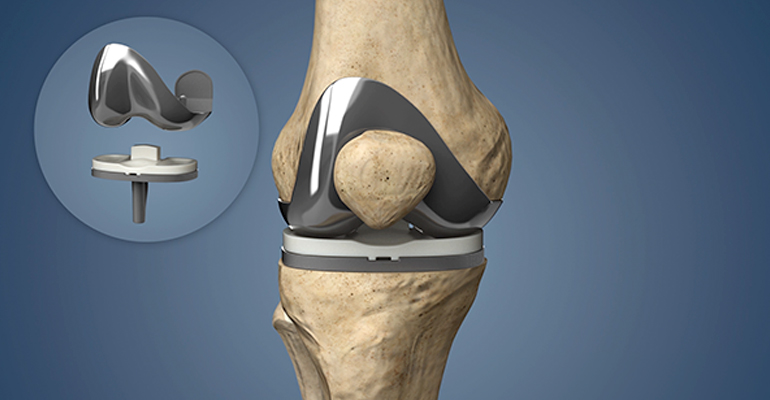-
-
+91-8591556577
-
Knee Replacement Surgery

Knee Replacement Surgery
Knee replacement surgery, also known as knee arthroplasty, is a procedure designed to relieve pain and restore function in severely damaged knees. This surgery is typically recommended for patients with chronic knee pain and mobility issues due to arthritis, injury, or other degenerative conditions. During the procedure, damaged bone and cartilage are removed and replaced with artificial components (prosthetics) that mimic the function of a healthy knee.
When is Knee Replacement Surgery Needed?
Knee replacement surgery is usually considered when:
- Severe Osteoarthritis: When the protective cartilage in the knee wears away, causing bone to rub against bone, leading to pain, swelling, and stiffness.
- Rheumatoid Arthritis: An autoimmune condition that leads to inflammation in the joint, causing pain, deformity, and loss of mobility.
- Post-Traumatic Arthritis: Arthritis resulting from an injury such as a fracture or torn ligament that causes knee degeneration over time.
- Other Knee Damage: From conditions such as bone tumors, avascular necrosis, or infections that cause significant damage to the knee joint.
If conservative treatments like physical therapy, medications, or injections have not provided relief, knee replacement surgery may be the best option to restore function and alleviate pain.
Types of Knee Replacement Surgery
- Total Knee Replacement (TKR): Involves replacing the entire knee joint, including the femur (thigh bone), tibia (shin bone), and sometimes the patella (kneecap).
- Partial Knee Replacement (PKR): Only the damaged part of the knee is replaced, often resulting in quicker recovery and less invasive surgery.
- Bilateral Knee Replacement: In cases where both knees are affected, bilateral replacement may be performed, either simultaneously or in separate surgeries.
The Knee Replacement Procedure
The knee replacement surgery generally involves the following steps:
- Preoperative Assessment: Before the surgery, your surgeon will evaluate your medical history, perform imaging tests like X-rays or MRIs, and determine the best surgical approach.
- Surgical Procedure: During the surgery, the damaged cartilage and bone are carefully removed. The prosthetic components are then implanted, designed to replicate the natural movement of a healthy knee.
- Postoperative Care: After the surgery, a comprehensive recovery plan, including physical therapy, is essential to regain strength and mobility.
Recovery and Rehabilitation
Recovery from knee replacement surgery typically occurs in stages:
- Hospital Stay: Most patients stay in the hospital for a few days, with pain management and monitoring for any complications.
- Physical Therapy: Physical therapy begins immediately after surgery to strengthen the muscles around the knee, improve range of motion, and help patients regain the ability to walk.
- Home Recovery: Over the next few weeks, patients will gradually increase their physical activity, focusing on exercises prescribed by their therapist.
- Full Recovery: Most patients achieve full recovery within 3 to 6 months, depending on the extent of the surgery and the patient’s overall health.
Benefits of Knee Replacement Surgery
- Pain Relief: The most significant benefit of knee replacement surgery is the substantial reduction or elimination of chronic knee pain.
- Improved Mobility: Patients can walk, climb stairs, and engage in daily activities without pain or stiffness.
- Enhanced Quality of Life: Restoring knee function allows individuals to return to a more active and independent lifestyle, improving overall well-being.
Risks and Complications
As with any surgery, knee replacement surgery carries some risks, including:
- Infection at the surgical site
- Blood clots
- Implant loosening or wear over time
- Nerve or blood vessel damage
- Stiffness or limited range of motion post-surgery
However, with proper care and rehabilitation, the likelihood of complications is minimized, and most patients experience successful outcomes.
Why Choose Us for Knee Replacement Surgery?
- Experienced Surgeons: Our team of skilled orthopedic surgeons has extensive experience performing knee replacement surgeries using the latest techniques and technologies.
- Personalized Care: We tailor treatment plans to each patient’s unique needs, ensuring optimal recovery and long-term success.
- Comprehensive Rehabilitation: Our postoperative rehabilitation programs focus on helping patients regain mobility and return to their daily activities as quickly as possible.
